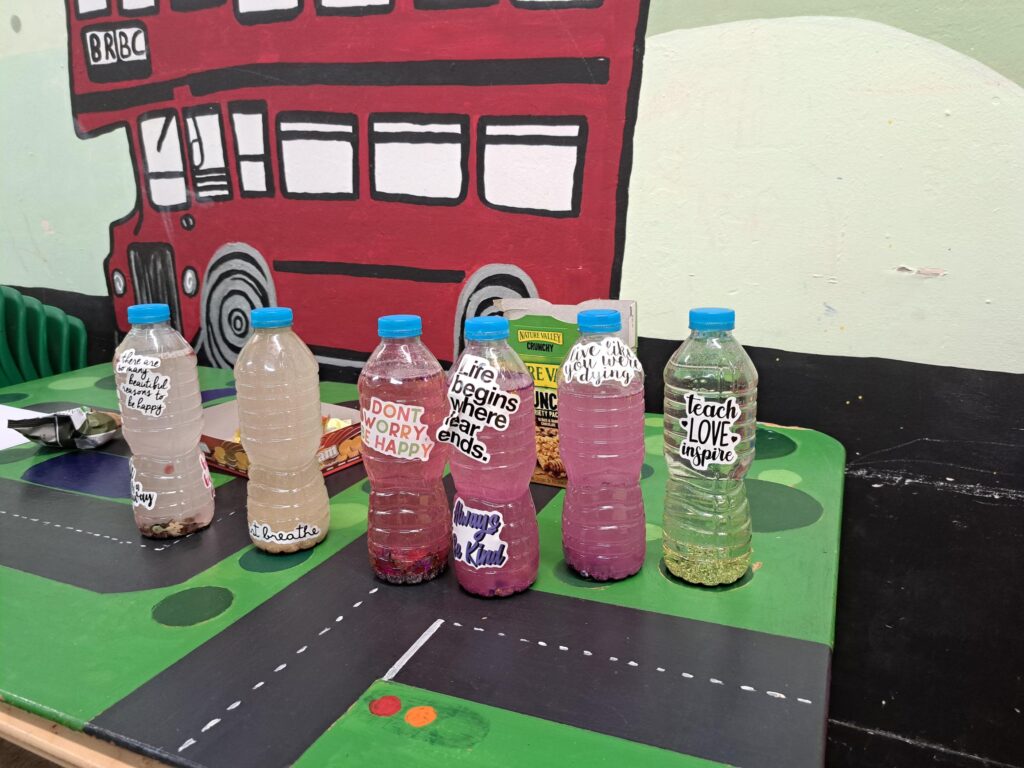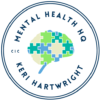We were really lucky to secure funding to run the Brain Tools project supporting the mental health of teens in the community in Greenwich after school. This project was aimed at 10 – 14 year olds, those requiring more emotional support in school, school refusers or those with anxiety and friendship issues.
The project aimed to teach about a variety of things to do with their well-being over six sessions we taught them about:
- Their brains
- Their emotions, how to recognise them and how they might affect them,
- The importance of communication and trust
- Managing negative thoughts
- Calming strategies and more
- Responsibilities to themselves, friendships and family
Attending the project led to the formation of friendships. The young people learnt that they were not alone with their emotional well-being.
Who did we work with?
We worked with a number of young people who had autism or ADHD, and we managed to connect with both boys and girls, though a large proportion were boys aged 10 to 13. Although they were signed up by their parents, those who came did stay for the whole programme.
What did the parents think?
100% of parents said there should be more projects of a similar nature and more than 80% said they should be delivered in the community.
The reasons for signing up their teens were:
- To learn to deal with emotions better
- My son is starting secondary school in September and will be going through a big transition.
- Lack of self confidence
- To understand and manage emotions
- Beginning to have challenging behaviour at school and at home
- needing extra help with handling anxiety
The benefits for mental health in teens in Greenwich

Sometimes 1:1 sessions are tricky for teens. Talking can be uncomfortable also, so we used creativity and games to deliver the sessions on this occasion
- They learnt new techniques to use and being in a group setting showed they wasnt alone
- He has learnt how to control his emotions a lot better. He is talking more about how he feels and is also listening to others
- Some good strategies for coping
- A great worry bottle which is still used. Techniques to manage emotions. Social skills from interacting with new people.
- Tools for how to diffuse her emotions, especially ‘just breathe’ bottle
- more confidence in attending things without parents
What could we do better as Professionals?
With referrals to mental health services at an all time high it is important for us to deliver quality services. So what did people think we could do better?
- Offer more workshops and visit schools
- More courses like this one would be great and more places young people of this age can get together to meet and talk
- It’s important for young people to have a safe space to meet with their peers and learn to socialise as these skills are much reduced since covid.
- Running a few short courses like this through the year which would give the kids the opportunity to learn skills, go away and implement them and then come back to reflect on what did/didn’t work well to fine-tune them
- offer more courses like this, follow up on previous course attendance.
I am delighted to have run this project. I have learnt so much. One thing is the importance of plans A, B and C when working with teens. I am hoping to expand the work and run more similar projects in the future. To find out how I can support your teen why not book an appointment
